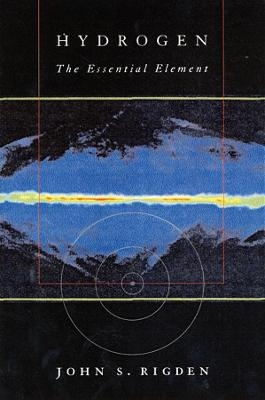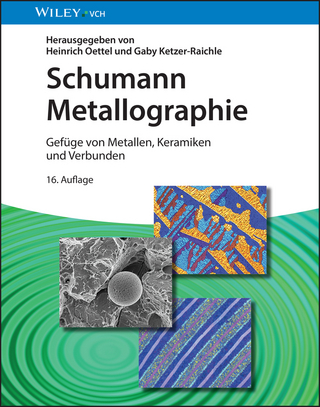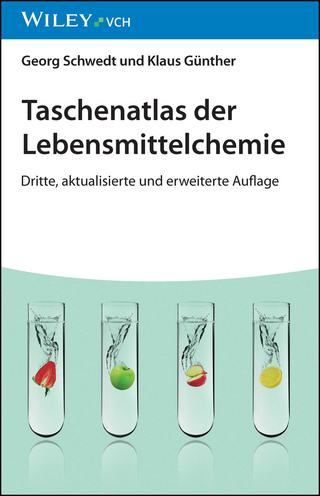
Hydrogen
Harvard University Press (Verlag)
978-0-674-01252-3 (ISBN)
Seduced by simplicity, physicists find themselves endlessly fascinated by hydrogen, the simplest of atoms. Hydrogen has shocked, it has surprised, it has embarrassed, it has humbled--and again and again it has guided physicists to the edge of new vistas where the promise of basic understanding and momentous insights beckoned. The allure of hydrogen, crucial to life and critical to scientific discovery, is at the center of this book, which tells a story that begins with the big bang and continues to unfold today.
In this biography of hydrogen, John Rigden shows how this singular atom, the most abundant in the universe, has helped unify our understanding of the material world from the smallest scale, the elementary particles, to the largest, the universe itself. It is a tale of startling discoveries and dazzling practical benefits spanning more than one hundred years--from the first attempt to identify the basic building block of atoms in the mid-nineteenth century to the discovery of the Bose-Einstein condensate only a few years ago. With Rigden as an expert and engaging guide, we see how hydrogen captured the imagination of many great scientists--such as Heisenberg, Pauli, Schrödinger, Dirac, and Rabi--and how their theories and experiments with this simple atom led to such complex technical innovations as magnetic resonance imaging, the maser clock, and global positioning systems. Along the way, we witness the transformation of science from an endeavor of inspired individuals to a monumental enterprise often requiring the cooperation of hundreds of scientists around the world.
Still, any biography of hydrogen has to end with a question: What new surprises await us?
John S. Rigden is Adjunct Professor of Physics, Washington University in St. Louis.
Prologue 1. In the Beginning: Hydrogen and the Big Bang 2. Hydrogen and the Unity of Matter: The Prout Hypothesis William Prout, 1815 3. Hydrogen and the Spectra of the Chemical Elements: A Swiss High School Teacher Finds a Pattern Johann Jakob Balmer, 1885 4. The Bohr Model of Hydrogen: A Paradigm for the Structure of Atoms Niels Bohr, 1913 5. Relativity Meets the Quantum in the Hydrogen Atom Arnold Sommerfeld, 1916 6. The Fine-Structure Constant: A Strange Number with Universal Significance Arnold Sommerfeld, 1916 7. The Birth of Quantum Mechanics: The Hydrogen Atom Answers the "Crucial Question" Werner Heisenberg and Wolfgang Pauli, 1925-26 * Paul Dirac, 1925-26 8. The Hydrogen Atom: Midwife to the Birth of Wave Mechanics Erwin Schrodinger, 1926 9. The Hydrogen Atom and Dirac's Theory of the Electron Paul Dirac, 1928 10. Hydrogen Guides Nuclear Physicists: The Discovery of Deuterium Harold Urey, 1932 11. Hubris Meets Hydrogen: The Magnetic Moment of the Proton Otto Stern, 1933 12. The Magnetic Resonance Method: The Origin of Magnetic Resonance Imaging I. I. Rabi, 1938 13. New Nuclear Forces Required: The Discovery of the Quadrupole Moment of the Deuteron Norman F. Ramsey and I. I. Rabi, 1939 14. Magnetic Resonance in Bulk Matter (NMR) Edward M. Purcell and Felix Bloch, 1946 15. Hydrogen's Challenge to Dirac Theory: Quantum Electrodynamics as the Prototype Physical Theory Willis Lamb, 1947 16. The Hydrogen Atom Portends an Anomaly with the Electron I. I. Rabi, John E. Nafe, and Edward B. Nelson, 1946 17. Hydrogen Maps the Galaxy Edward M. Purcell and Harold Ewen, 1951 18. The Hydrogen Maser: A High-Precision Clock Norman F. Ramsey and Daniel Kleppner, 1960 19. The Rydberg Constant: A Fundamental Constant Johannes Robert Rydberg, 1890 * Theodor Hansch, 1992 20. The Abundance of Deuterium: A Check on Big Bang Cosmology David N. Schramm, 1945-1997 21. Antihydrogen: The First Antiatom 22. The Bose-Einstein Condensate for Hydrogen Satyendranath Bose, 1924 * Albert Einstein, 1925 * Eric A. Cornell and Carl E. Wieman, 1995 * Daniel Kleppner and Tom Greytak, 1998 23. Exotic Hydrogen-like Atoms: From Theory to Technology Epilogue Notes Acknowledgments Credits Index
| Erscheint lt. Verlag | 30.12.2003 |
|---|---|
| Zusatzinfo | 23 halftones, 13 line illustrations, 2 tables |
| Verlagsort | Cambridge, Mass |
| Sprache | englisch |
| Maße | 140 x 210 mm |
| Gewicht | 313 g |
| Themenwelt | Naturwissenschaften ► Chemie |
| Naturwissenschaften ► Physik / Astronomie | |
| ISBN-10 | 0-674-01252-6 / 0674012526 |
| ISBN-13 | 978-0-674-01252-3 / 9780674012523 |
| Zustand | Neuware |
| Informationen gemäß Produktsicherheitsverordnung (GPSR) | |
| Haben Sie eine Frage zum Produkt? |
aus dem Bereich


